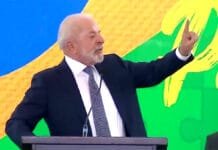Trump Administration Cuts USAID Foreign Aid Contracts by 90%, Imposes 25% Tariff on EU Imports
The Trump administration has taken a decisive step in reshaping U.S. foreign aid and trade policies. In a move that aligns with its “America First” agenda, the administration has announced a 90% reduction in USAID foreign aid contracts and the imposition of a 25% tariff on European Union (EU) imports. These policy changes mark a significant shift in the United States’ approach to global engagement, economic strategy, and international relations.
USAID Foreign Aid Budget Slashed by Over $60 Billion
In a drastic move, the Trump administration has terminated over 5,800 of 6,200 long-term USAID contracts, effectively cutting more than $60 billion in foreign aid. This decision impacts U.S.-funded humanitarian, economic, and development projects worldwide.
The administration argues that much of the foreign aid previously allocated was misaligned with national interests and contributed to inefficiencies within government spending. President Trump has often criticized USAID programs as being wasteful and ineffective, claiming that taxpayer dollars should be directed toward domestic priorities.
However, opposition groups warn that these cuts could lead to significant humanitarian crises, especially in regions reliant on U.S. assistance for medical aid, infrastructure, and disaster relief.
Mass Layoffs at USAID and Contractor Organizations
With these foreign aid reductions, thousands of USAID employees and contractors have lost their jobs. Reports indicate that:
- 4,080 USAID employees worldwide have been furloughed or dismissed.
- An additional 1,600 employees face uncertainty due to contract suspensions.
- Many were given just 15 minutes to clear their offices before being escorted out.
The abrupt nature of the layoffs has been heavily criticized, with some experts calling it the largest workforce reduction in USAID history. Humanitarian organizations and contractors reliant on USAID funding have also been left scrambling to reassess their future operations.
Trump’s Justification: “Foreign Aid is a Waste of Money”
President Trump, along with Elon Musk, who heads the newly formed Department of Government Efficiency (Doge), has championed these cuts as necessary for reducing government waste. According to administration officials:
- Foreign aid programs have been exploited for political purposes rather than genuine humanitarian assistance.
- Many USAID projects were seen as supporting a liberal globalist agenda rather than directly benefiting U.S. interests.
- Cutting these programs will allow funds to be redirected toward domestic initiatives such as infrastructure, tax cuts, and military investments.
Legal Challenges and Opposition
Despite the administration’s strong stance, the cuts have faced legal hurdles. A federal judge recently issued an order requiring that frozen foreign aid funds be immediately released. However, in response, the administration has sought to delay implementation through an emergency appeal to the U.S. Supreme Court.
Legal analysts argue that abruptly terminating USAID contracts may violate existing agreements, leaving the U.S. government open to lawsuits from contractors and international partners.
25% Tariff on EU Imports: A New Trade War?
Alongside foreign aid reductions, the Trump administration has announced a 25% tariff on European imports, citing unfair trade practices by the EU.
Key Details of the Tariff Policy:
- The tariffs will apply to a broad range of EU goods, including automobiles, electronics, and agricultural products.
- The administration argues that European tariffs on U.S. goods are disproportionately high, and this measure is meant to level the playing field.
- U.S. officials have specifically pointed to EU tariffs on passenger cars, which currently stand at 10%, compared to the U.S.’s 2.5% tariff on European cars.
Impact on U.S. Businesses and Consumers
The economic consequences of these tariffs remain uncertain. On one hand, U.S. manufacturers may benefit from reduced competition from European imports. However, businesses that rely on European supply chains could experience higher costs, leading to price increases for American consumers.
In response, the European Union has warned of potential retaliatory measures, which could escalate into a full-scale trade conflict between the U.S. and EU.
Chevron’s Venezuela Oil Export License Revoked
As part of its broader economic policies, the Trump administration has also revoked Chevron Corporation’s permit to extract and export oil from Venezuela. This move is expected to:
- Cut off a major financial lifeline for the Venezuelan government.
- Put pressure on Venezuelan President Nicolás Maduro to implement democratic reforms.
- Further disrupt global oil markets, potentially leading to higher energy prices worldwide.
The decision follows ongoing tensions between the U.S. and the Maduro regime, as well as the administration’s stance on reducing American dependence on foreign energy sources.
The Bigger Picture: A Shift in U.S. Global Policy
These sweeping economic and foreign policy changes highlight a significant shift in U.S. global engagement under President Trump’s leadership. The administration remains committed to:
- Reducing reliance on foreign aid as a diplomatic tool.
- Restructuring trade relationships to prioritize American industries.
- Focusing on domestic economic growth over global commitments.
However, the long-term consequences of these policies remain to be seen. Will the U.S. benefit from reduced spending and strengthened trade protections, or will these measures backfire by straining international alliances and increasing costs for American consumers?
As these policies unfold, continued legal challenges, global economic shifts, and diplomatic tensions are expected. The world will be watching closely as the Trump administration reshapes America’s role on the international stage.















